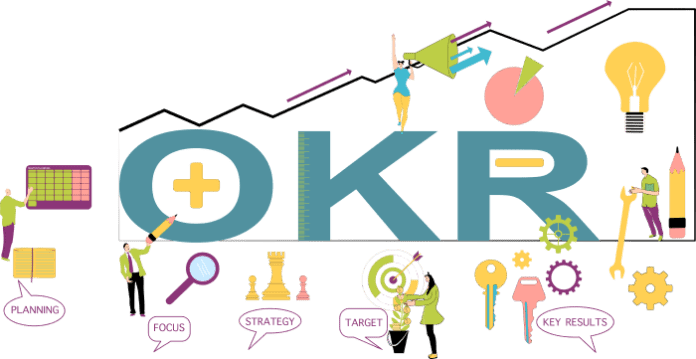Performance management plays a pivotal role in driving business success by aligning employee performance with organizational goals. In this blog, we will explore the importance of performance management and how to implement it effectively. We will cover key concepts such as OKR (Objectives and Key Results), performance management software, the performance review process, and the benefits of incorporating AI into performance management. Let’s dive in and discover how performance management can propel your business forward.
Understanding Performance Management
Performance management is a comprehensive process that focuses on maximizing employee potential and achieving organizational objectives. It involves setting clear performance expectations, providing ongoing feedback and coaching, conducting performance reviews, and recognizing and rewarding high performance. By implementing an effective performance management system, businesses can foster a culture of accountability, continuous improvement, and employee engagement.
Setting Clear Performance Expectations
Setting clear performance expectations is vital for guiding employees towards achieving organizational goals. Objectives and Key Results (OKRs) have gained popularity as a goal-setting methodology. OKRs provide a framework for setting ambitious and measurable objectives, along with key results that define success. This methodology promotes alignment, transparency, and focus within teams and across the organization.
Performance Management Software
Performance management software offers powerful tools to streamline performance management processes. These software solutions automate various tasks such as goal tracking, feedback collection, performance assessments, and data analysis. With performance management software, businesses can enhance efficiency, accuracy, and data-driven decision-making. The integration of AI in performance management software further enhances its capabilities, providing valuable insights and predictive analytics.
The Performance Review Process
The performance review process is a cornerstone of performance management. It involves periodic assessments of employee performance against predefined criteria. The process should be fair, objective, and transparent. By conducting constructive performance discussions, businesses can provide feedback, identify strengths and areas for improvement, and set goals for future performance. The performance review process helps employees understand their progress and align their efforts with organizational objectives.
OKR vs. MBO
OKR and MBO (Management by Objectives) are both goal-setting frameworks, but they have distinct differences. MBO focuses on setting objectives and targets that are then cascaded down through the organization. OKR, on the other hand, emphasizes alignment, transparency, and agility, using ambitious objectives and measurable key results to guide performance. OKRs encourage frequent progress tracking and adaptability, making them particularly suitable for dynamic and fast-paced business environments.
OKR vs. SMART Goals
While SMART (Specific, Measurable, Achievable, Relevant, and Time-bound) goals are widely used, OKRs offer a more comprehensive approach to goal-setting. SMART goals provide a structure for defining clear and specific targets, whereas OKRs incorporate ambitious objectives and measurable key results to drive performance and encourage innovation. OKRs go beyond individual goals, fostering collaboration and cross-functional alignment.
OKR Canvas
The OKR Canvas is a visual tool that helps organizations design and track their OKRs effectively. It consists of key sections such as objectives, key results, initiatives, and progress tracking. The canvas provides a centralized view of OKRs, facilitating alignment, accountability, and transparency within teams and across the organization. It serves as a powerful guide for implementing the OKR methodology successfully.
Performance Management Accountability
Accountability is a crucial aspect of performance management. It involves holding employees responsible for their performance and outcomes. By fostering a culture of accountability, businesses encourage individuals to take ownership of their work, meet expectations, and deliver results. Performance management processes, such as regular feedback, coaching, and performance assessments, play a vital role in reinforcing accountability and driving continuous improvement.
The Role of AI in Performance Management
The integration of OKR with AI technologies in performance management offers exciting possibilities. AI can assist in analyzing vast amounts of performance data, identifying patterns, and providing valuable insights. AI-powered performance management systems can offer personalized recommendations for employee development, facilitate real-time feedback, and predict performance trends. By leveraging AI, businesses can enhance the effectiveness and efficiency of their performance management processes.
Conclusion
Performance management is a critical component of business success. By setting clear expectations, leveraging performance management software, implementing OKR methodologies, conducting effective performance reviews, and embracing AI technologies, businesses can maximize employee potential, drive performance, and achieve organizational goals. Prioritizing performance management establishes a culture of accountability, continuous improvement, and employee engagement, ensuring long-term success in today’s competitive landscape.
